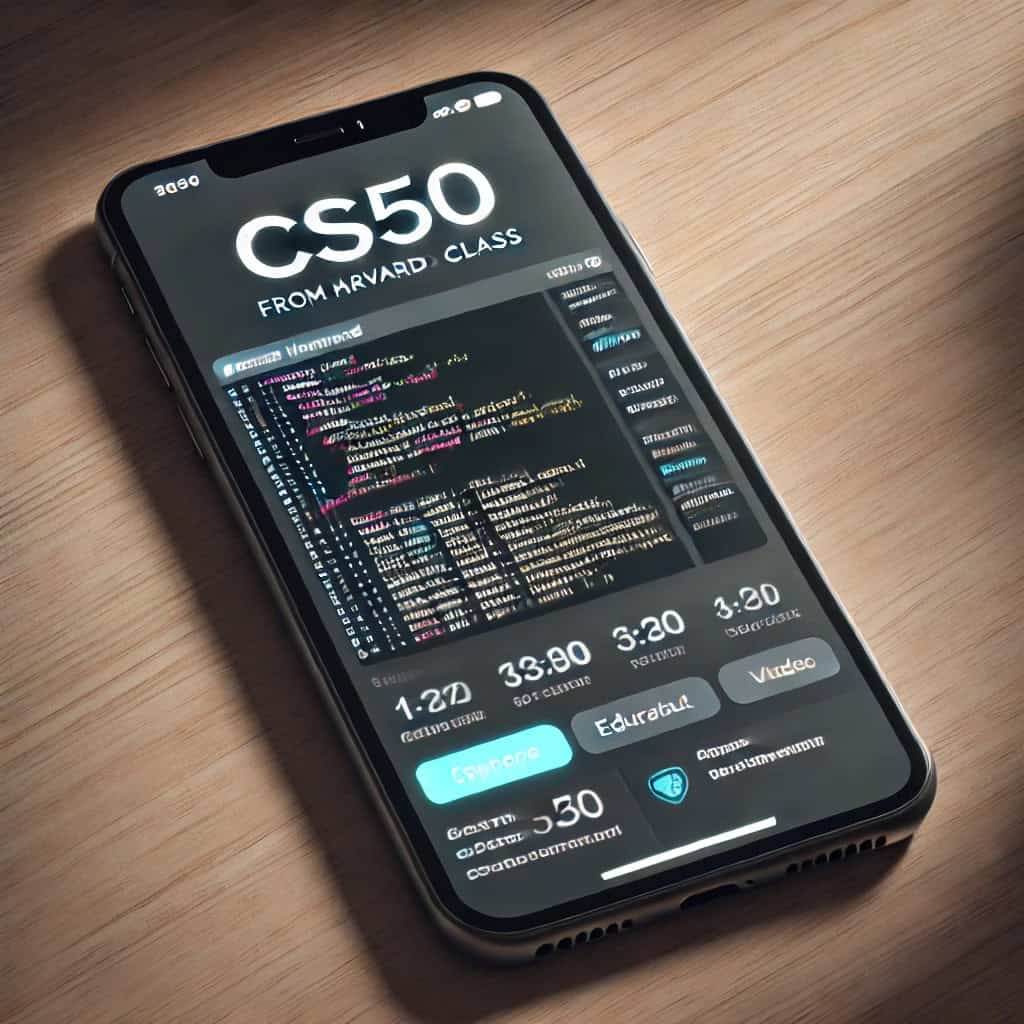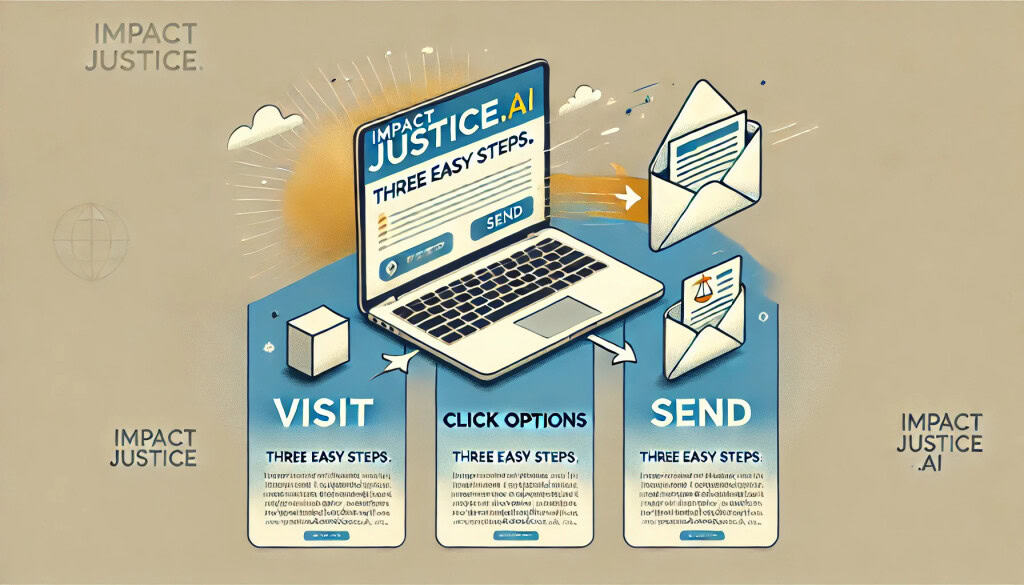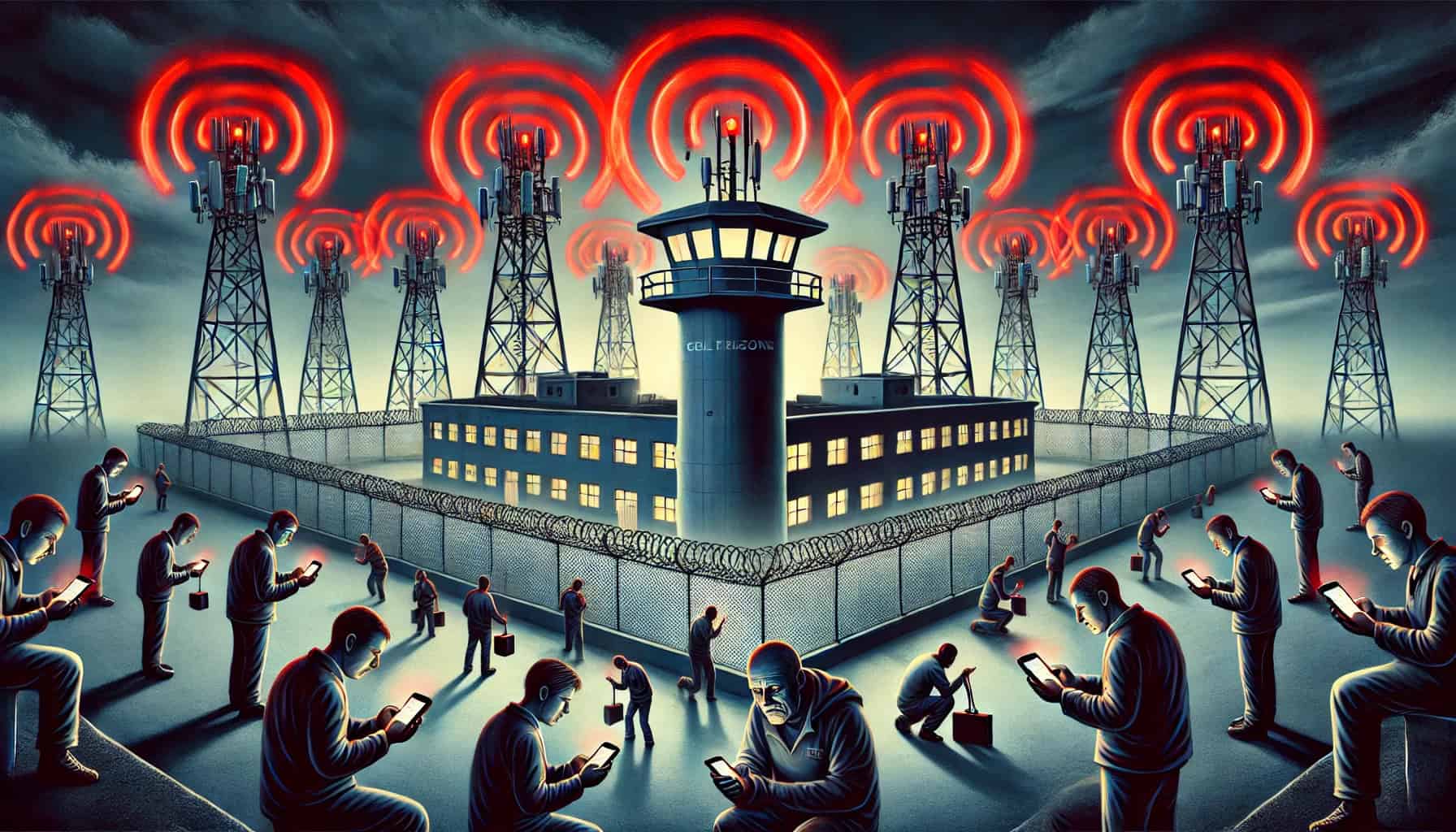Georgia prisons are quietly rolling out cell phone blocking technology, aiming to eliminate unauthorized inmate communication. The Georgia Department of Corrections (GDC) claims this is about stopping crime and improving security, but history—and the U.S. Department of Justice (DOJ)—suggests otherwise.
Update: The GDC has now turned on the MAS system at Hays, Calhoun, Wilcox Dooly, and many others.
This crackdown isn’t just about security. It’s about control—silencing inmates who expose prison abuse, increasing profits for prison phone companies, and worsening already dangerous conditions.
What happens when thousands of inmates suddenly lose their only link to the outside world?Violence, riots, and unchecked corruption.1
How Georgia’s Cell Phone Blocking System Works
The GDC has been quietly installing contraband interdiction systems (CIS) at multiple prisons, including Telfair State Prison. These systems include:
🔹 Managed Access Systems (MAS)
• Creates a controlled network inside the prison, allowing only approved devices to function. All unauthorized phones are blocked from connecting.
🔹 Beacon Technology
• Detects and disables contraband cellphones when they enter a restricted area.
🔹 Geolocation-Based Blocking
• Prevents phones in specific prison zones from sending or receiving signals.
🔹 Micro-Jamming (Legally Questionable)
• Blocks all wireless signals in certain areas, a method that could interfere with emergency communications.
More technical details follow the footnotes.2
These systems are already in place at several Georgia prisons and will soon be turned on. It’s coming soon to a prison near you.
The Unintended Consequences: Violence, Cover-Ups, and Corruption

The Georgia prison system is already one of the deadliest in the country. The DOJ’s 2024 investigation found unchecked gang control, routine sexual abuse, and deliberate staff indifference to violence3.
Cutting off cell phone access doesn’t fix these problems—it makes them worse.
📌 More Power for Gangs
✔ Gang leaders will still communicate. They already control state-monitored phones through coerced access.
✔ Without cell phones, non-gang inmates lose their only way to seek outside help.
✔ The most vulnerable will be silenced, leaving them fully at the mercy of corrupt officers and prison gangs.
📌 Violence Will Skyrocket
✔ Since cellphones became common in prisons, the GDC eliminated nearly all rehabilitative programs.

✔ Tablets, which once allowed inmates to access music, movies, and education, have been phased out.
✔ Now, with nothing left to occupy their time, prisons will descend into chaos.
✔ The likely outcome? More riots, more stabbings, and more dead prisoners.
📌 No More Whistleblowers
✔ The biggest exposés of prison corruption—murders, abuse, medical neglect—came from cell phone footage.
✔ Inmates have documented rampant staff corruption, sexual assaults by officers, and murders that would have otherwise been covered up.
✔ Without cell phones, GDC officials can more easily hide the true conditions inside these prisons.
📌 Families & Legal Support Cut Off
✔ Georgia’s prison phone system is notoriously expensive. With cell phones blocked, inmates will be forced to rely on monitored, overpriced calls.
✔ Legal access will suffer—many inmates use cell phones to research their cases, contact lawyers, and file legal documents.
✔ Inmates who lose contact with their families are more likely to reoffend. Cutting off communication damages rehabilitation.
What Do Inmates Really Use Cell Phones For?
The GDC argues that cellphones only benefit criminal enterprises, but the real reasons inmates use phones paint a very different picture.
✔ Contacting Family – Prison calls are expensive, and many families can’t afford them. Cell phones allow parents to speak to their kids.

✔ Reporting Abuse & Violence – Nearly every major prison scandal in Georgia came from cell phone recordings exposing murders, rapes, and neglect.
✔ Legal Assistance – Cell phones provide access to legal resources, helping inmates fight wrongful convictions.
✔ Mental Health Support – Isolation increases suicide rates. Phones help inmates stay connected and emotionally stable.
Read more about Cell Phone use in Prisons in our article, The Truth About Cellphones in Georgia prisons.
What Happens Next?
Other states have already tried blocking cell phones—and the results haven’t been pretty.
🚨 Will Georgia See More Violence?
• South Carolina began implementing cell phone blocking technology in 2021. The result? More riots, more attacks, and no actual decrease in gang activity4.
• Experts predict a rise in unrest, hunger strikes, and violent outbursts—prisoners won’t take this quietly.
🚨 Does This Actually Improve Security?
• Cell phone blocking does nothing to stop corrupt officers from smuggling in contraband, drugs, or weapons.
• If Georgia wants safer prisons, it should focus on:
✔ Hiring more staff
✔ Removing violent gang members
✔ Expanding rehabilitation programs
🚨 Who Benefits From This?
✔ Prison phone companies stand to make millions from increased reliance on state-controlled calls.
✔ GDC officials benefit by hiding violence and corruption from the public.
✔ The real losers? Inmates, their families, and anyone who cares about justice.
Conclusion: Security or Suppression?
This isn’t just about stopping crime. It’s about cutting off communication, silencing whistleblowers, and keeping the public in the dark about what’s happening inside Georgia’s prisons.
Instead of blocking phones, Georgia should be fixing the corruption and abuse that inmates have been exposing for years.
Without public outcry, this policy will go unchallenged—and the suffering inside Georgia’s prisons will only get worse.
A Call to Action: Demand Transparency with Impact Justice AI
🔹 Georgia’s prison system must be held accountable.
🔹 Legislators must push for transparency & oversight.
🔹 Use ImpactJustice.AI to message lawmakers & demand real prison reform.
📢 Silencing inmates won’t stop the violence— it will make it worse.
📢 Share this article & expose the truth before they bury it.

Learn about the alternatives to silencing prisoners:
Footnotes:
- Read more in The Truth about Cell Phones ↩︎
- See Technical Breakdown below ↩︎
- DOJ Report ↩︎
- https://www.justice.gov/archives/opa/pr/bureau-prisons-tests-micro-jamming-technology-south-carolina-prison-prevent-contraband-cell
Https://www.justice.gov/archives/opa/pr/bureau-prisons-tests-micro-jamming-technology-south-carolina-prison-prevent-contraband-cell
While these measures aim to enhance security, concerns persist regarding their effectiveness and potential unintended consequences, such as increased unrest among inmates and challenges in emergency communications. Critics argue that simply blocking cell phones does nothing to address the root causes of violence—such as staff shortages, gang control, and lack of rehabilitative programs—and instead creates more instability inside prisons. Sources.
↩︎
Here’s the list of FCC approved facilities and operators.
| CIS Lease Agreements by Correctional Facility | |
| Facility | CIS Operator |
| GA Arrendale State Prison – Alto | GA Trace-Tek |
| GA Augusta State Medical Prison – Grovetown | GA Trace-Tek |
| GA Baldwin State Prison – Hardwick | GA Trace-Tek |
| GA Burruss Correctional Training Center – Forsyth | GA Trace-Tek |
| GA Calhoun State Prison – Morgan | GA Trace-Tek |
| GA Central State Prison – Macon | GA Trace-Tek |
| GA Coastal State Prison – Wentworth | GA Trace-Tek |
| GA Dodge State Prison – Chester | GA Trace-Tek |
| GA Dooly State Prison (Dooly) – Unadilla | GA Trace-Tek |
| GA Dooly State Prison (Houston) – Unadilla | GA Trace-Tek |
| GA Emanuel Women’s Facility – Swainsboro | GA Trace-Tek |
| GA Georgia Diagnostic and Classication State Prison – | Trace-Tek |
| GA Georgia State Prison – Reidsville | GA Trace-Tek |
| GA Hancock State Prison – Sparta | GA Hawk’s Ear Communications LLC |
| GA Hays State Prison – Trion | GA Trace-Tek |
| GA Helms Facility – Atlanta | GA Trace-Tek |
| GA Jimmy Autry Correctional Institute – Pelham | GA CellBlox Acquisitions LLC |
| GA Johnson State Prison – Wrightsville | GA Trace-Tek |
| GA Lee State Prison – Leesburg | GA Trace-Tek |
| GA Long State Prison – Ludowici | GA Trace-Tek |
| GA Macon State Prison Facility – Oglethorpe | GA CellBlox Acquisitions LLC |
| GA Metro Reentry Facility – Atlanta | GA Trace-Tek |
| GA Montgomery State Prison – Mt Vernon | GA Trace-Tek |
| GA Phillips State Prison – Buford | GA Hawk’s Ear Communications LLC |
| GA Pulaski State Prison – Hawkinsville | GA Trace-Tek |
| GA Rogers State Prison – Reidsville | GA Trace-Tek |
| GA Rutledge State Prison – Columbus | GA Trace-Tek |
| GA Smith State Prison Facility – Glennville | GA CellBlox Acquisitions LLC |
| GA Telfair State Prison Facility – Helena | GA CellBlox Acquisitions LLC |
| GA Valdosta State Prison – Valdosta | GA Hawk’s Ear Communications LLC |
| GA Walker State Prison – Rock Spring | GA Trace-Tek |
| GA Ware State Prison – Waycross | GA Trace-Tek |
| GA Washington State Prison – Davidsboro | GA Trace-Tek |
| GA Whitworth Women’s Facility – Hartwell | GA Trace-Tek |
| GA Wilcox State Prison – Abbeville | GA Trace-Tek |
Technical Breakdown: How Georgia’s CIS System Blocks Cell Phones in Prisons
To understand how Georgia’s Contraband Interdiction System (CIS) operates, it’s essential to first examine how cell phones communicate with towers and then explore how these managed access and blocking technologies disrupt that communication.
How Cell Phones Communicate with Towers
A modern cellular network operates on a system of cell towers, each covering a specific geographic area. Here’s a step-by-step breakdown of how a phone connects to a network:
1. Searching for a Network
• When a mobile device is powered on, it scans available frequencies to identify the strongest signal from nearby cell towers.
• This process is called network selection and is guided by a pre-programmed Preferred Roaming List (PRL) stored on the phone’s SIM card.
2. Establishing a Connection
• Once the device finds a cell tower with an acceptable signal, it sends a Registration Request (Attach Request) to the network.
• The network responds with an Authentication Request, verifying the phone’s SIM credentials and IMEI (International Mobile Equipment Identity).
• If the network recognizes the device as an authorized subscriber, it assigns it a channeland allows communication.
3. Signal Handoff & Data Transmission
• As the user moves, the phone continuously switches between towers via a process called handoff to maintain a strong signal.
• The phone and the tower exchange control signaling via a paging channel to establish voice calls, SMS, and data sessions.
4. Encryption & Network Security
• To ensure security, GSM, UMTS, and LTE networks encrypt communications using algorithms like A5/1 (GSM), KASUMI (UMTS), and AES-128 (LTE).
• This prevents eavesdropping but does not stop a properly configured Managed Access System (MAS) from intercepting and controlling the signal.
How Georgia’s CIS System Blocks Unauthorized Phones
1. Managed Access Systems (MAS)
• MAS technology mimics legitimate cellular networks, tricking unauthorized phones into connecting to fake base stations rather than commercial cell towers.
• This is achieved by broadcasting a stronger signal than nearby legitimate towers, effectively forcing all mobile devices within range to attempt to connect.
Process Flow of MAS:
1. The MAS broadcasts its presence on the same frequencies as local carriers (AT&T, Verizon, T-Mobile).
2. The MAS sends an immediate network attachment request to all devices, forcing them to attempt to connect.
3. Once a phone connects, the system performs IMEI filtering:
• If the device is pre-approved (such as an official prison phone), the connection is allowed.
• If the device is unregistered, the MAS blocks all outgoing calls, SMS, and data.
4. The MAS can then log connection attempts, making it easy for prison officials to track contraband phone activity.
2. Beacon Technology for Detection
• Many CIS systems include Beacon Technology, where low-power radio transmitterssend out signals that can be detected by prison security teams.
• When a contraband phone enters a restricted area, it pings the beacon, which:
• Records the phone’s unique ID
• Flags the inmate associated with the device
• Triggers alerts for enforcement teams to locate and seize the device
3. Geolocation-Based Blocking
• Using GPS and RF triangulation, the system identifies when a phone is inside a specific geographic boundary (e.g., the prison perimeter).
• The system then issues a “location update reject” signal, preventing phones from registering on commercial networks.
4. Micro-Jamming (Selective Jamming)
• Unlike traditional wide-area jamming, which is illegal under FCC regulations, Micro-Jamming uses highly targeted directional RF interference:
• Signal disruption is focused on prison dormitories and yards while leaving administrative areas unaffected.
• The jamming system scans for active cell connections and injects interference only when unauthorized signals are detected.
• Micro-Jamming uses spread-spectrum techniques, making it difficult for contraband devices to circumvent blocking by switching frequencies.
How These Technologies Affect Cell Phone Use
| Technology | Effect on Contraband Phones |
|---|---|
| Managed Access | Prevents unauthorized devices from connecting to commercial carriers. |
| Beacon Tracking | Detects and logs active cell phones in restricted zones. |
| Geolocation Blocking | Denies network registration based on GPS coordinates. |
| Micro-Jamming | Selectively disrupts active calls and messages without affecting all nearby signals. |
Read more about managed access systems below.
Read the full Tecore Managed Access White Paper:
View PDF DocumentHere’s a summary of the document “Tecore Managed Access White Paper”:
Managed Access Systems (MAS) mimic commercial cellular networks to attract wireless devices within prison boundaries. Once connected, the system distinguishes between authorized and unauthorized devices:
• Unauthorized devices: Blocked from accessing commercial networks, rendering them ineffective.
• Authorized devices: Allowed to connect normally without interruption.
Tecore’s Intelligent Network Access Controller (iNAC):
Tecore’s iNAC is a leading Managed Access solution known for its flexibility, reliability, and comprehensive coverage. It utilizes advanced radio frequency (RF) technology to create precise coverage areas, ensuring commercial networks outside prisons aren’t negatively impacted.
Key Features of iNAC:
• Comprehensive Technology: Covers all current wireless technologies (2G, 3G, 4G LTE, WiFi, and future 5G).
• Spectrum Band Coverage: Supports a wide range of frequency bands.
• Upgradability: Flexible architecture capable of adapting to emerging technologies and network evolutions.
• Deployment Flexibility: Suitable for both indoor and outdoor environments, adaptable to urban and rural locations.
• Emergency & Law Enforcement Support: Allows emergency calls and complies with law enforcement requirements for legal interception and reporting.
Advantages Over Other Solutions:
• Tecore emphasizes the superiority of Managed Access over other methods:
• Traditional search and seizure: Labor-intensive, reactive, and ineffective.
• IMSI Catching (Detection): Passive detection without real-time disruption of contraband devices.
• Beacon-based systems: Easily bypassed through device hacking or firmware modification.
• Jamming: Illegal in the U.S., disrupts critical communications, and lacks intelligence gathering capabilities.
Patented Technology:
Tecore’s Managed Access is supported by numerous patents, ensuring its robust technological framework.
Conclusion:
Tecore’s Managed Access (iNAC) is presented as the best solution for managing and eliminating the threat posed by contraband cellular communications within correctional facilities. The solution’s flexibility, comprehensive coverage, proactive approach, and proven track record differentiate it from competing technologies, making it a leading choice for enhancing institutional security and public safety.


I’m against the corrections with corruption, the officers do it because it’s a sense of power that they get away with
Don’t take the phones away